GreedFall Combines the Best Parts of Dragon Age and The Witcher
If Western RPGs with lots of exploration are your thing, GreedFall seems like a solid bet.
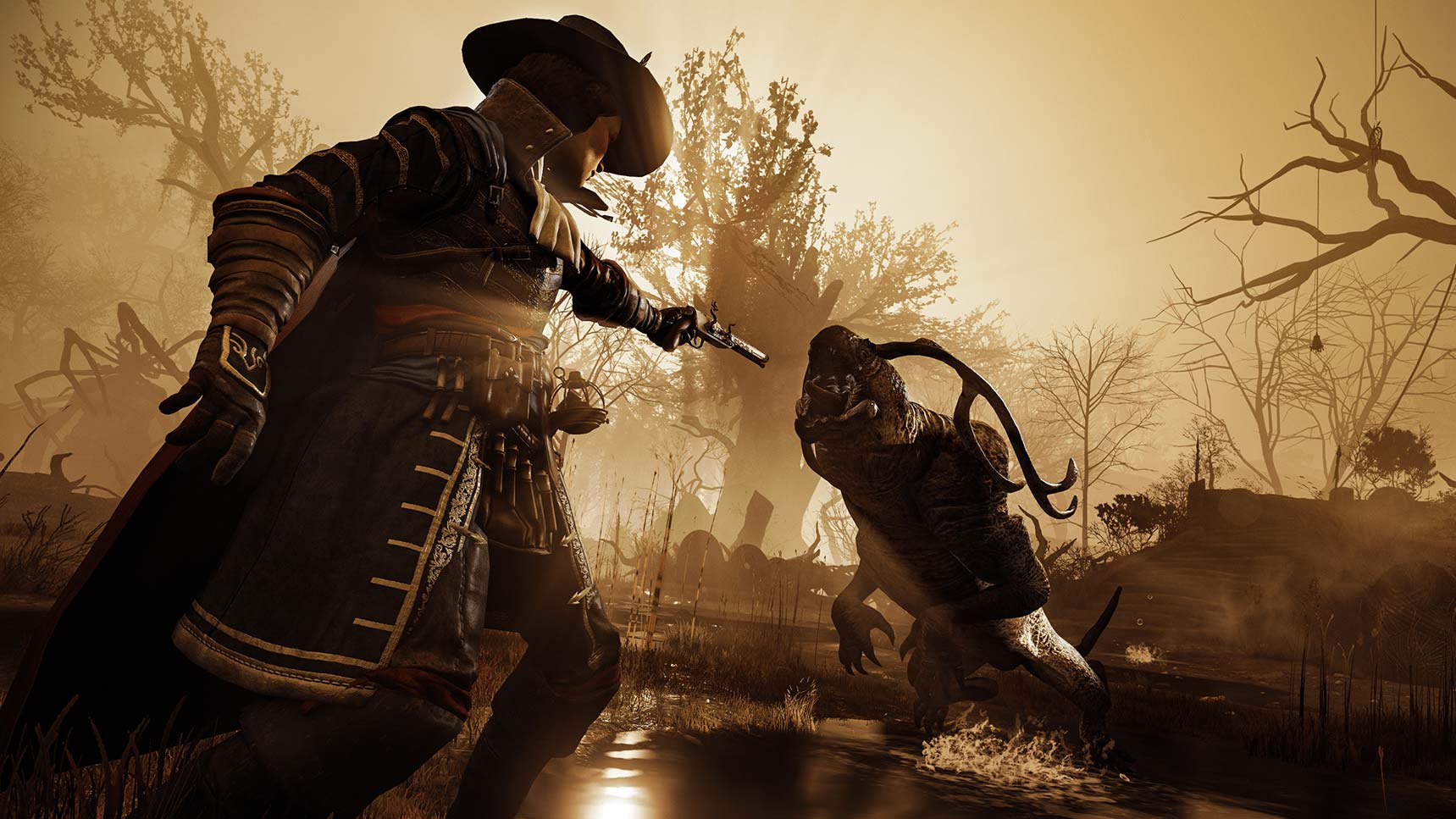
Did you play Dragon Age: Inquisition and wish that it had more-dynamic combat? Did you play The Witcher 3: Wild Hunt and wish that it let you build a party? GreedFall ($50) is here to split the difference, and so far, it looks like it's doing a pretty good job.
This semi-open-world RPG will debut for the PC, PS4 and Xbox One on Sept. 10, and if Western RPGs with lots of exploration are your thing, this game seems like a solid bet.
I went hands on with GreedFall for about half an hour during a press demo in NYC, and I generally liked what I saw. In the game, you customize a protagonist named De Sardet and set off to explore the recently discovered continent of Teer Fradee. Complete with flintlock pistols, tricorn hats, wooden caravels and a general "Age of Exploration" aesthetic, GreedFall feels a lot like early modern Europe — just with a healthy dose of magic thrown in.
A (pretty) big world
The demo began with De Sardet in the middle of a quest, exploring a large map in the eastern half of Teer Fradee. A representative from Spiders, the game's developer, informed me that the game features a "semiopen" world. Rather than being able to travel to anywhere from anywhere, you'll instead explore a series of large, interconnected maps, each one full of its own story missions, side quests and secrets. If you played The Witcher 3, think of the four different explorable areas, each laden with small settlements and question marks denoting points of interest; it's the same basic idea. The maps here seem a little smaller and more manageable, though.
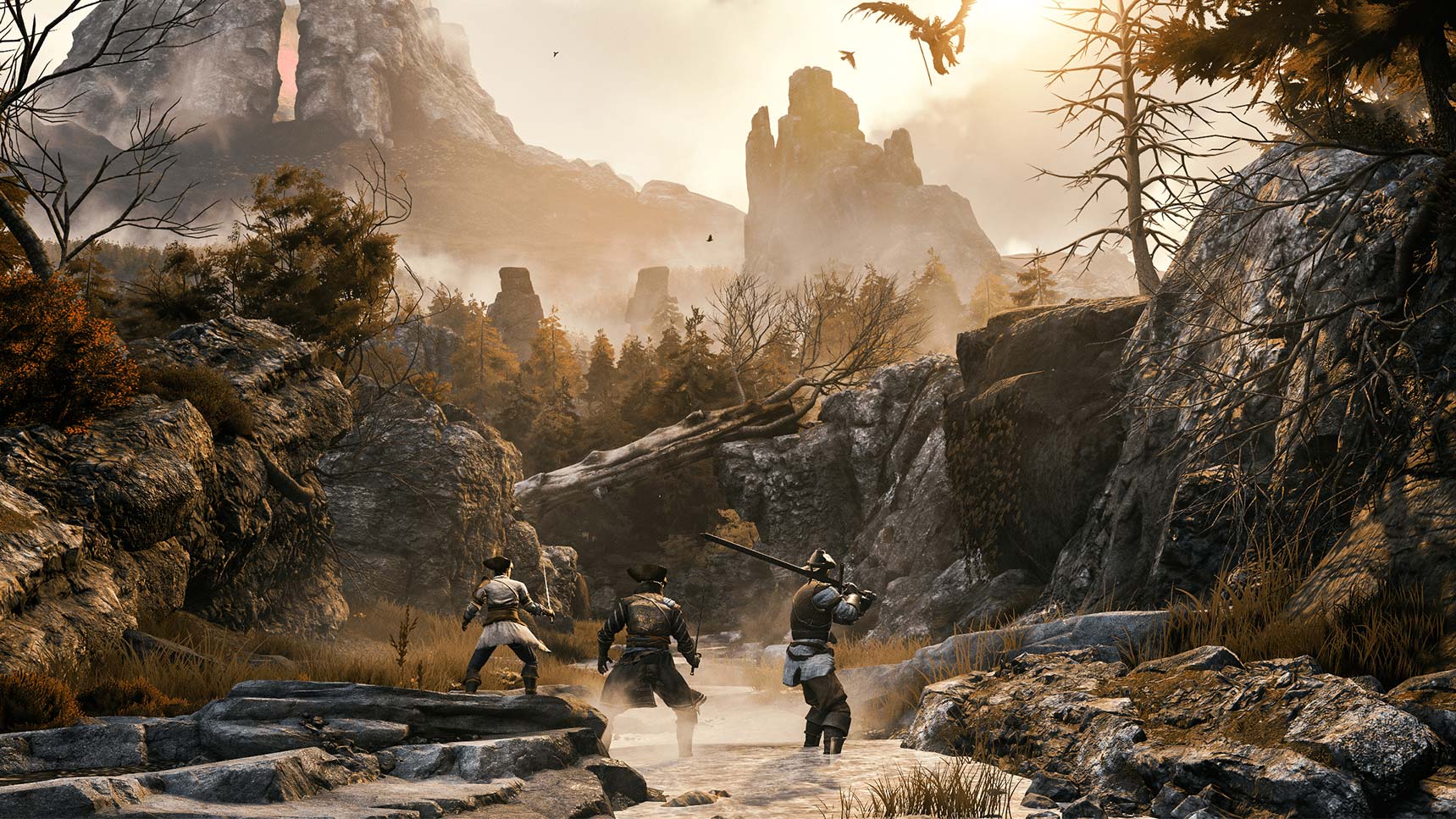
Another thing I noticed right away is that De Sardet had a party with her. Like in a good BioWare game, you'll be able to recruit a variety of party members and develop relationships (both platonic and romantic) with them as you progress through the game. Party members aid you in battle, but they also evaluate the choices you make within the story. Treat your cohort well and take actions they agree with, and they'll be loyal until the end. Ignore their loyalty quests and go against their moral codes, and they may leave the party entirely.
MORE: Best Games of 2019 (So Far)
In any case, De Sardet's two companions came in handy as she embarked on her quest to track down a handful of missing alchemists. GreedFall channels 17th-century voyages of discovery, as a variety of Old World nations vie for control of Teer Fradee. They don't just want it for wealth; they also believe the continent holds the cure to the deadly Malichor plague afflicting people back home. De Sardest hopes to find the alchemists and see what progress they've made toward curing the disease.
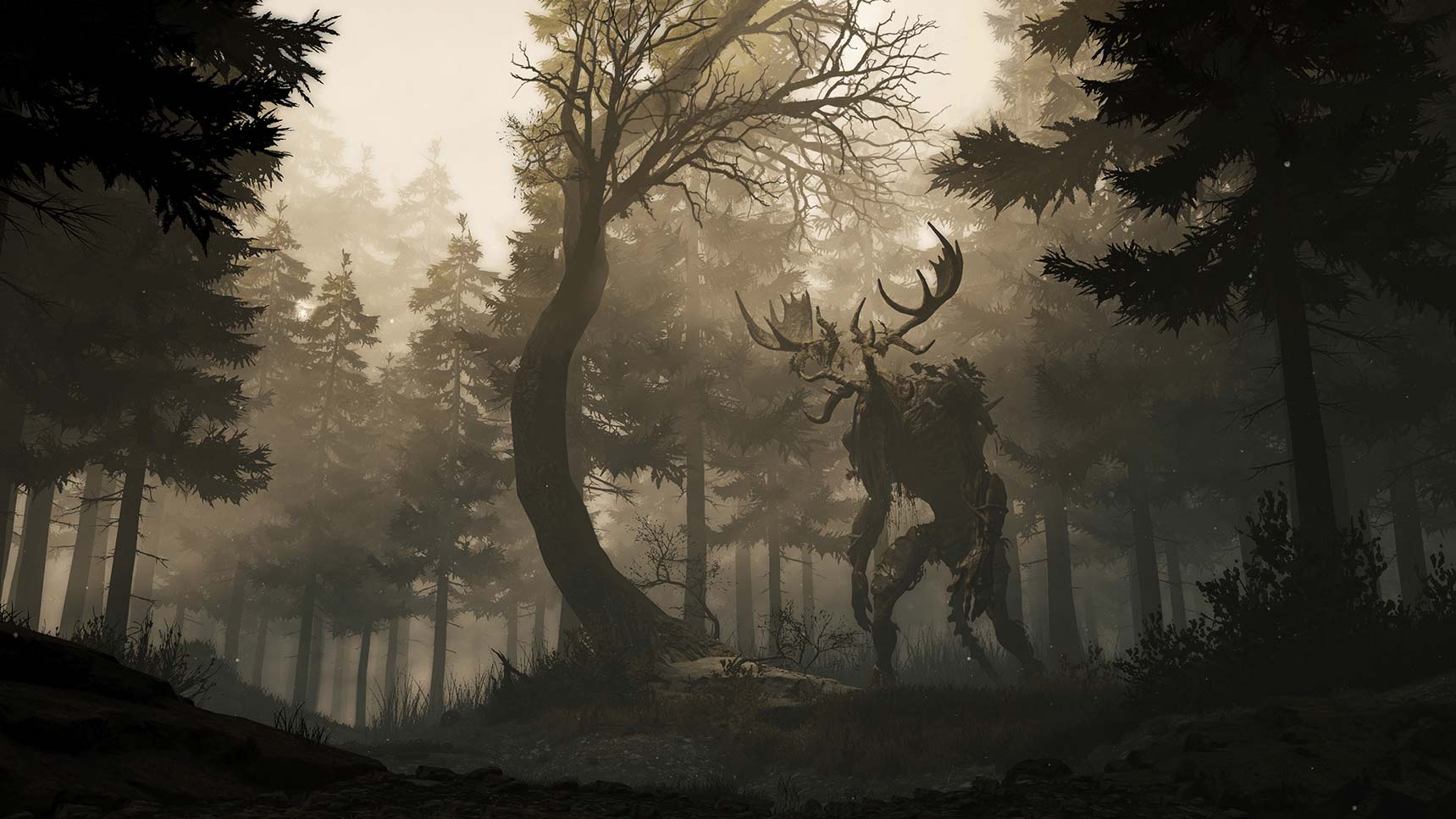
Since Teer Fradee was, until recently, untrammeled by humans, there were a few native beasts to deal with along the way. This particular De Sardet was a magic user, who could also wield a flaming sword. As such, I had a good time confronting a group of huge, shaggy beasts that looked something like bison crossed with bears. The combat should be pretty familiar to action/RPG fans. You can dish out both light and heavy attacks, dodge enemy blows, switch weapons on the fly, and cast magic spells.
In fact, you can assign magic spells to a weapon slot, then inflict a variety of effects depending on whether you use light or heavy attacks. It's a creative, less cumbersome way to use magic, and it should make life a lot easier (and more fun) for players who gravitate toward magical builds.
A unique protagonist
Fans of old-school PC RPGs should also be pleased to hear that you can pause this game and issue commands at any time. Left to their own devices, De Sardet's two party members will follow a generalized set of tactics, attacking, casting magic and healing as necessary. But if you'd prefer to micromanage for a tough fight, you can also slow down the action and tell your party members (including De Sardet) exactly what to do.
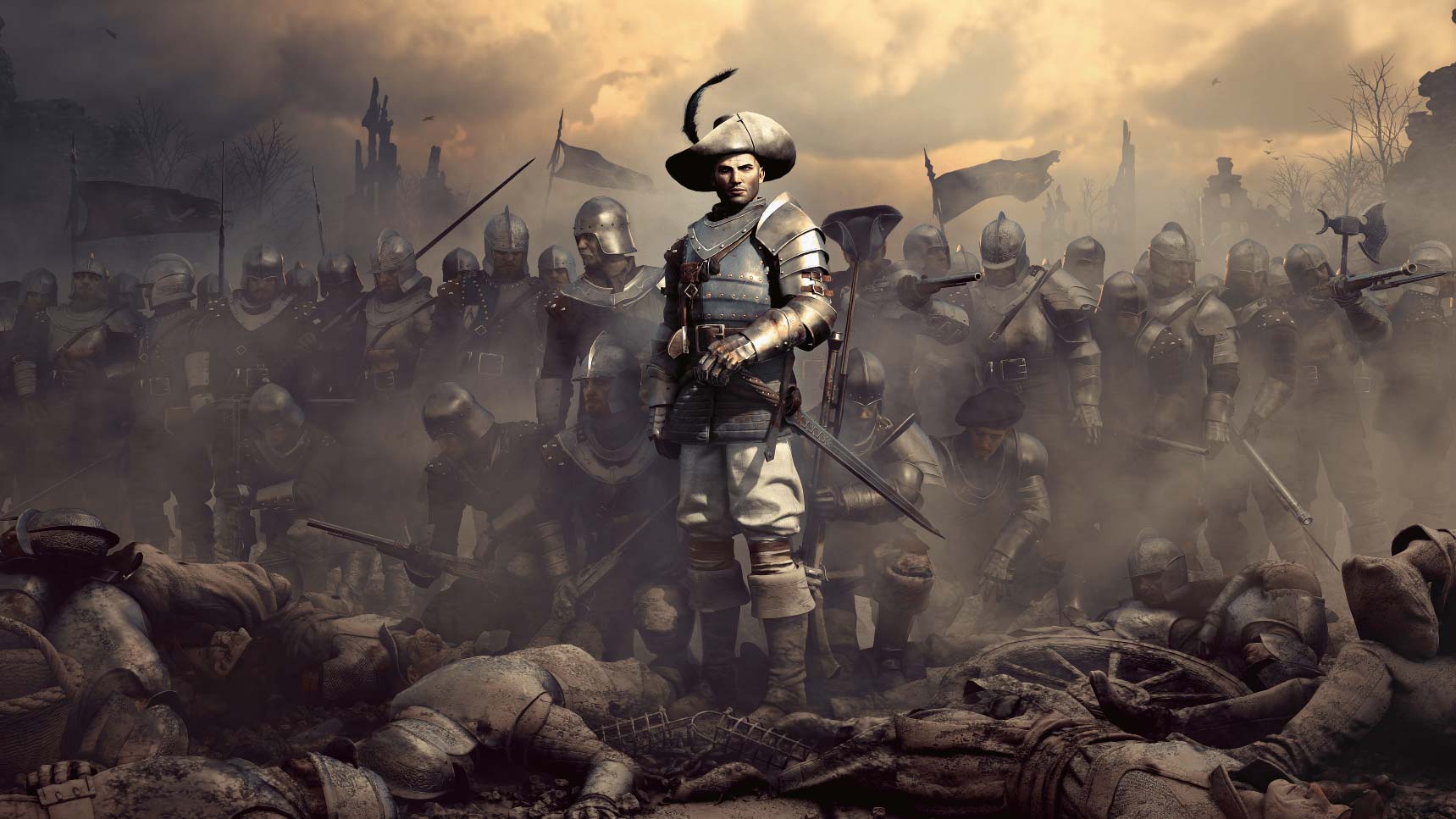
This is in keeping with Spiders' promise to offer a variety of gameplay approaches. After combat wrapped up, I had a chance to check out GreedFall's character-advancement and -crafting systems. As De Sardet levels up, she'll be able to put points into three different skill trees: warrior (melee combat), technical (firearms) and magic (of both the healing and harming varieties). You could just choose one skill tree and commit to it fully, but the game encourages you to experiment and combine skills instead.
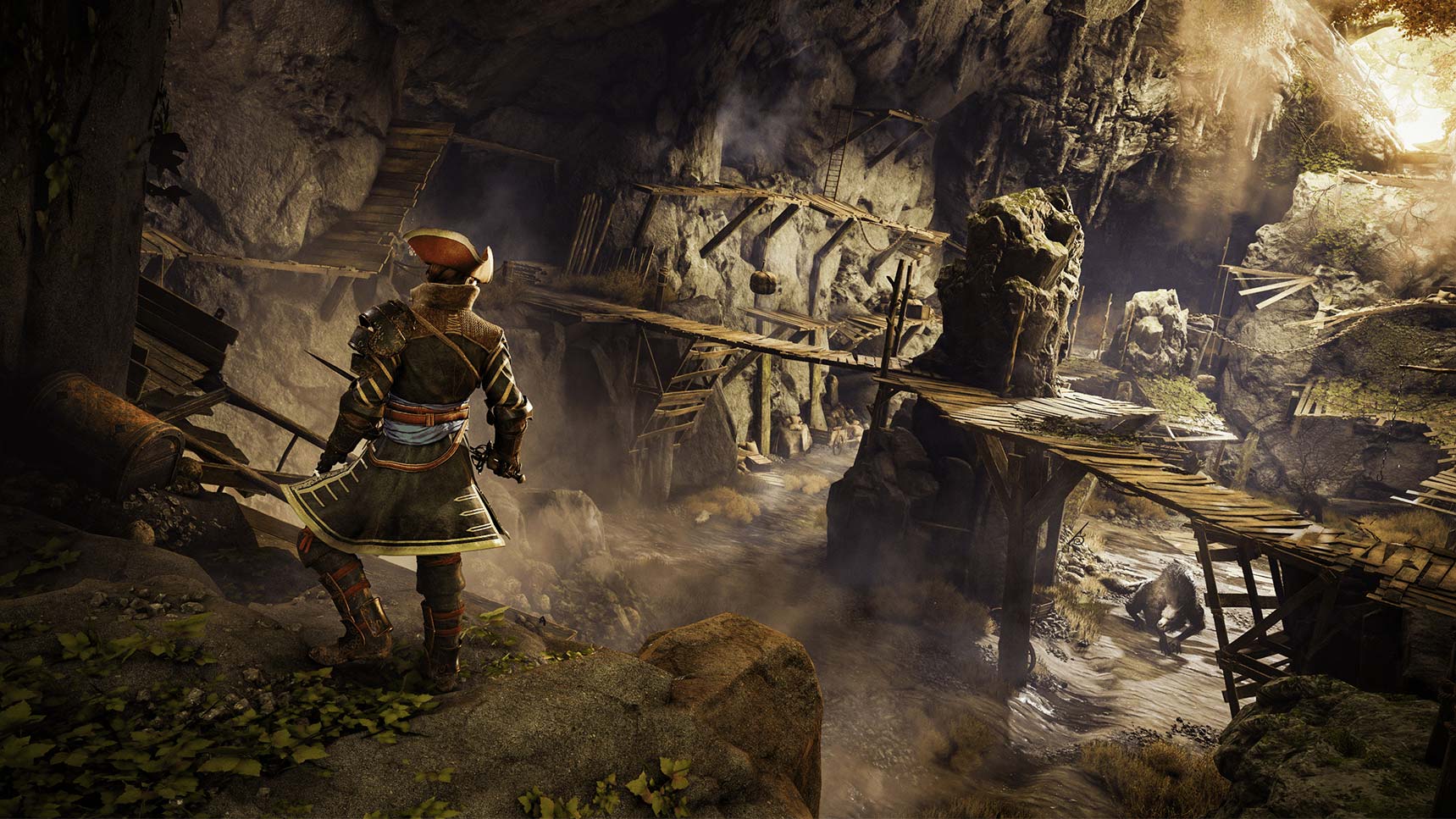
A number of skills combine abilities from two trees — warrior and magic, for instance, which might help you cast spells more efficiently during melee combat. You can also reset your skills and experiment with new combinations at any time.
Crafting is a little more rote: Gather ingredients and blueprints, then craft weapons, armor and accessories based on what you find. However, I adored one subtle touch about this system. As you customize your equipment, you can add flourishes like ribbons and linings. Depending on what you add, your character model will change accordingly, giving you dozens of small ways to make your De Sardet build unique.
The age of exploration
One other thing I appreciate about GreedFall is that it seems to have an appropriate scope for its resources. Rather than promising players hundreds of hours of same-y gameplay, Spiders believes that the game will take from 30 to 50 hours for most players. That's a respectable length for an RPG but also suggests that the game is a more focused, story-driven experience than some of its contemporaries.
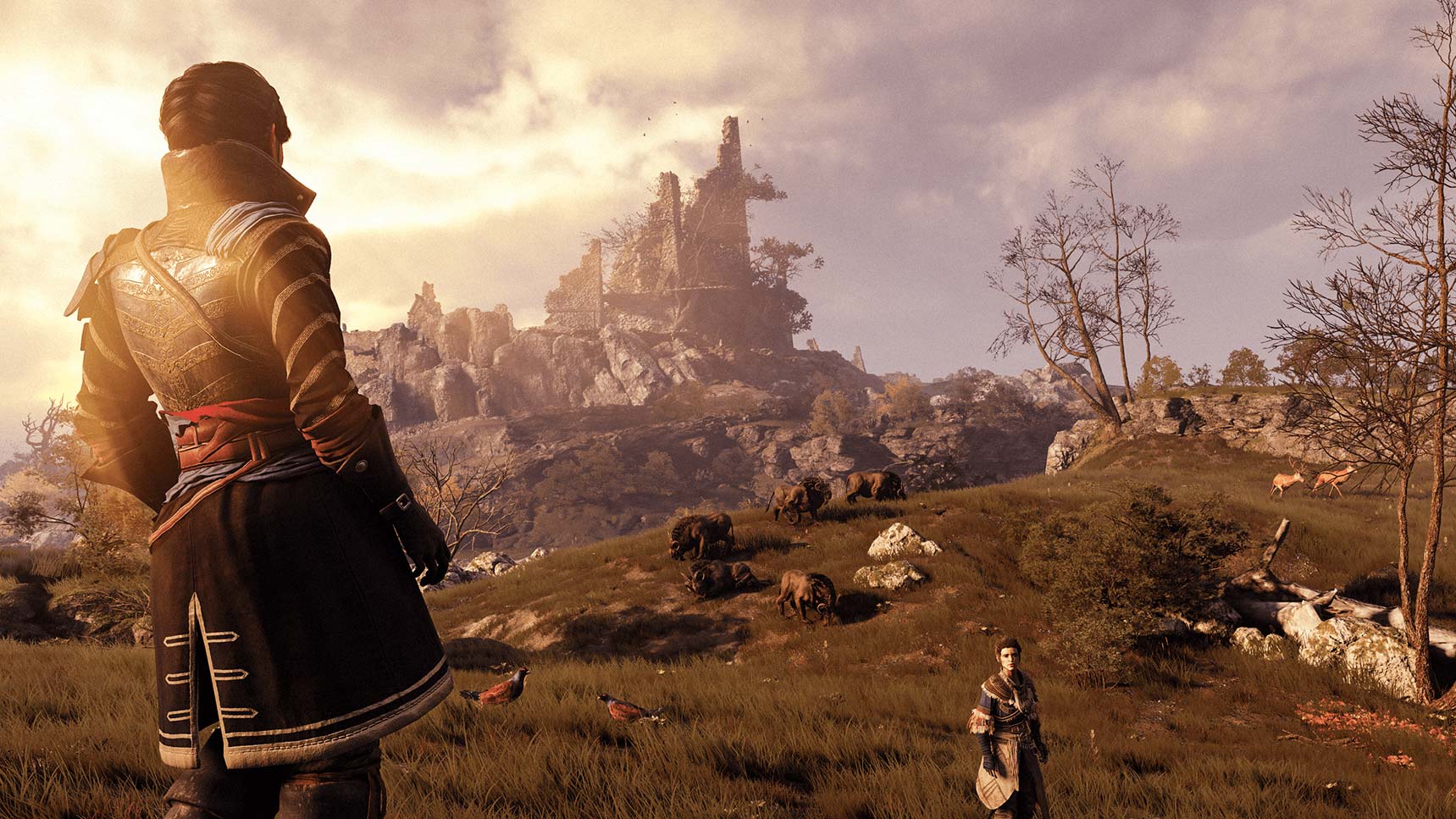
While I would admittedly need to spend more than 30 minutes with a big game like GreedFall to fully evaluate it, I was pretty pleased with what I saw. The game looks like a solid, well-crafted Western RPG, complete with everything that fans like about the genre. At the risk of being glib, it looked like Dragon Age with faster combat, or The Witcher with a party system, right down to the graphics and level layout.
GreedFall has fast-paced-but-comprehensible combat, an assortment of interesting party members, an intriguing setting and plenty of choices to influence the course of the story. It's probably not going to redefine the genre. But if it gives players a satisfying, well-developed adventure, that's all it really needs to do.
Sign up to get the BEST of Tom's Guide direct to your inbox.
Get instant access to breaking news, the hottest reviews, great deals and helpful tips.
Marshall Honorof is a senior editor for Tom's Guide, overseeing the site's coverage of gaming hardware and software. He comes from a science writing background, having studied paleomammalogy, biological anthropology, and the history of science and technology. After hours, you can find him practicing taekwondo or doing deep dives on classic sci-fi.

